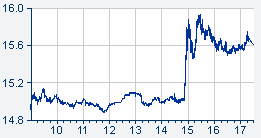This recession has been also interesting, not just painful, at least for people with a curiousity for how stock markets react to news.
(And, yes, there are probably dozens of other reasons for recessions to be not just interesting but even useful and necessary: They are important regulators in a feedback control loop, so, should we affect them with stimuli or let them do their regulating job? You may guess my opinion.)
I have previously wondered what moves stock markets. I think, most of the time it is a daunting task to give a satisfying answer. Right now, though, markets seem to be very reactive to specific rumours, as soon as they are public. One day up the next down and I argue the most matter rumours and figures on the US economy, worldwide. So, currently, stocks seem to be that shortsighted and transparent to suggest daily predictability.
A chronicle. The world is waiting for US unemployment figures, released by the government in the morning: If better-than-expected, the DJI will soar – and some already speculate What if in the end they got it right? – else drop, and the unhappy faces persist.
There it goes the complex interconnected reality. We just need a few figures going up and a few going down.

A curiousity. The image is a plot of the UBS AG share for July 31, 2009. At the opening, the value of a share was roughly 14.90 CHF. At the close somewhere around 15.60 CHF; +4.69%, which is good but I don’t think the highlight. The interesting bit, at least to me, is what happened shortly before 3pm CEST. The gain of the day happened in more or less 10 minutes. Of course, there is a reason for this, namely, the “agreement in principle” between Switzerland and the US (published by Bloomberg at 08:58 EDT).

